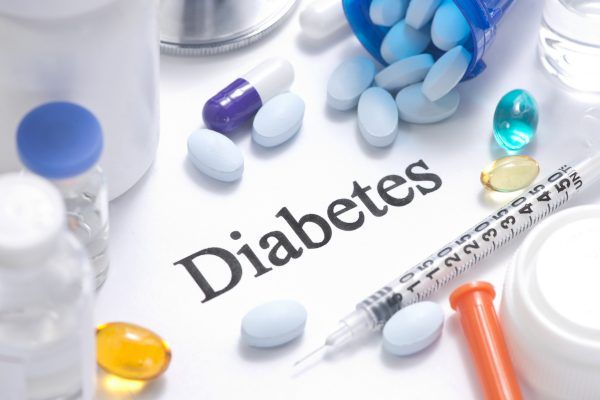All about Diabetes? Diabetes is a disease that occurs when your blood glucose, which is also known as blood sugar, is too high in your blood. This is what normally happens.
The main source of energy for humans is Blood glucose. Blood glucose comes from the food we eat. Now, insulin, a hormone that is made by our pancreas, is the one that helps the glucose that we get from food to be used as energy.
What happens is that sometimes, the body does not have enough insulin or simply put, the insulin is not working well in getting blood glucose to our cells, then the glucose is going to stay in the blood instead of getting to the cells to be used as energy.
This Glucose then stays in our blood and doesn’t reach your cells. With time, glucose becomes too much in the blood and begins to cause problems. This is among others the major cause of diabetes. Even though diabetes has no cure, one can manage it and stay very healthy.
Diabetes is sometimes known as “a touch of sugar” or “borderline diabetes.” These terms suggest that someone doesn’t really have diabetes or has a less serious case, but every case of diabetes is serious.
What is diabetes?
What are the different types of diabetes?
The most common types of diabetes are type 1, type 2, and gestational diabetes.
Type 1 diabetes: If you have type 1 diabetes, your body does not make insulin. Your immune system attacks and destroys the cells in your pancreas that make insulin. Type 1 diabetes is usually diagnosed in children and young adults, although it can appear at any age. People with type 1 diabetes need to take insulin every day to stay alive.
Type 2 diabetes: If you have type 2 diabetes, your body does not make or use insulin well. You can develop type 2 diabetes at any age, even during childhood. However, this type of diabetes occurs most often in middle-aged and older people. Type 2 is the most common type of diabetes.
Gestational diabetes: Gestational diabetes develops in some women when they are pregnant. Most of the time, this type of diabetes goes away after the baby is born. However, if you’ve had gestational diabetes, you have a greater chance of developing type 2 diabetes later in life. Sometimes diabetes diagnosed during pregnancy is actually type 2 diabetes.
Other types of diabetes: Less common types include monogenic diabetes, which is an inherited form of diabetes, and cystic fibrosis-related diabetes.
How common is diabetes? As of 2015, 30.3 million people in the United States, or 9.4 per cent of the population, had diabetes. More than 1 in 4 of them didn’t know they had the disease. Diabetes affects 1 in 4 people over the age of 65. About 90-95 per cent of cases in adults are type 2 diabetes.
Specifically, in Ghana, studies in the general population have estimated that between 3.3 and 6 per cent of the population has diabetes with the prevalence increasing with age and being higher in urban than in rural areas
Who is more likely to develop type 2 diabetes? You are more likely to develop type 2 diabetes if you are age 45 or older, have a family history of diabetes, or are overweight. Physical inactivity, race, and certain health problems such as high blood pressure also affect your chance of developing type 2 diabetes.
You are also more likely to develop type 2 diabetes if you have prediabetes or had gestational diabetes when you were pregnant.
What health problems can people with diabetes develop?
Over time, high blood glucose leads to problems such as
Heart Disease
Stroke
Kidney Disease
Eye Problems
Dental Disease
Nerve Damage
Foot Problems
You can take steps to lower your chances of developing these diabetes-related health problems. Speak to a professional now.
Source:https://ghanahealthnews.com/all-about-diabetes/






